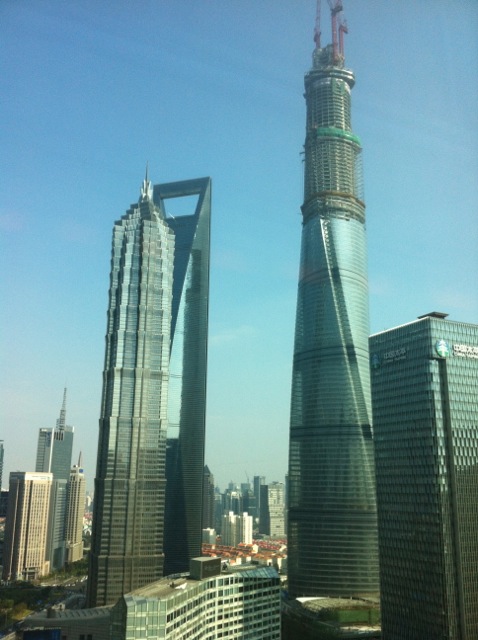Tag Archives: Reform
Times of change for China
Thousands of party members were accused of corruption in 2013. President Xijinping is taking the fight against corruption seriously. The sheer volume of cases is impressive. This fight against corruption is not a very new development, but new is the fact that even the highest party functionaries are not safe anymore.
It remains unclear if Xijinping is using this fight also for his own agenda, to get rid of his political adversaries. The following years will show if Xi can be remembered for cleaning up and improving the economic environment.
Overall China is currently in a period of transition. The fight against corruption is causing a lot of commotion and wide spread reforms are being enacted. These reforms will take time, but a transition of the Chinese economy will happen.
A shift to a more consumption driven growth will be necessary. But also the environmental living conditions and the rule of law have to be improved if China hopes to attract global firms and foreign direct investments.
The basic conditions and potential for economic growth remain intact. Export driven growth currently remains sluggish. Also China remains rather insular and fails to integrate regionally and globally. Territorial disputes with most of its neighbours upset regional governments and hurt international trade. Japan is outpacing China in Asia with outbound investments, while China is busy with internal reforms, internal unrest and border disputes.
Cost are rising fast in China, labor disputes and questionable decisions of local labor authorities increase the overall cost of manufacturing. Times are tough, prices and factor cost are rising. It remains important to find new sources of income and watch the details even more. Keep an eye out for trouble spots and insist on due diligence in your China operations.
Investors eye reform effects |Editorials |chinadaily.com.cn
The Third Plenum of the 18th Central Committee of the Communist Party produced the first policy and reform blueprint of the new Chinese leadership, it is a pledge to deepen reform and strengthen the role of the free market.
Though the announcements so far are lacking detail and any short term changes will be limited. Change in all areas covered by this third plenum will be introduced gradually and only if proven successful.
Time for a comprehensive reform
The third plenary session of the 18th CPCcentral committee, November 9 to 12, 2013
During this meeting a blueprint for comprehensive reform should be put forward, with a focus on innovation development strategy.[China reforms eye more innovative bases; Xinhua; 05NOV13]
China needs a shift to a more sustainable growth path. One that uses resources more efficiently, is more inclusive, and more consumer based. To achieve this shift, actions on several fronts are needed:
- Financial reforms
- Fiscal reforms
- Structural measures
[Singh, Anoop; A wish list for China’s third plenum; IMF direct; 22OCT13]
Also the development research center (DRC) if China’s state council recently released a proposed roadmap for the next round of reforms. This ‘383 Scheme’ refers to “a three-in-one reform principle in eight key reform areas, with three correlated reform combinations,” which puts an emphasis on a economic structure ruled by the law. [Dezan Shira & Associates; China’s Official Think Tank Releases ‘383 Scheme’ for Future Reforms China Briefing; 05NOV13]
Major problems with reform of the current system remain. “Transformation of the economic growth is entirely interlocked,” said Yuan Xucheng, a former official who is now deputy secretary general of the China society of economic reform, a think tank in Beijing. ” You can’t transform one part without transforming all others.”
Obstacles will be hard to overcome. Reforms of the hukou system, land policy, social safety net, fiscal system for local governments as well as reforms of sectors controlled by state-owned companies all face resistance, because urban residents, state owned companies, ministries and local geovernments all fear for loss of their privileges. [Buckley, Chris; Chinese Leader’s economic plan tests goal to fortify party power; New York Times; 06NOV13]
It remains to be seen what the CPC central committe will declare in the next few days and which meassures will actually be carried out.
A Wish List for China’s Third Plenum | iMFdirect – The IMF Blog
Taller buildings, higher ambitions – is the crisis looming?

Sustainable growth and further reform
Development of the Chinese economy in the first 3 Quarters 2013.
In the first three quarters of 2013 the Chinese economy was stable and showed overall growth, albeit with lower growth rates than in 2012.
CPC Central Committee and the State Council continue to support stable growth trend, focus on deepening reforms and opening up, accelerating transformation and upgrade the Chinese economy as well as protect and improve the livelihood of the population.
[Chinese Bureau of Statistics, www.gov.cn; http://www.gov.cn/wszb/zhibo581/content_2509780.htm]
The government statements show confidence that the economy will continue to grow and reforms will be successful. However according to the IMF, “Space for demand support policies through government spending and lending (including through the shadow banking in China) is approaching its limits and can no longer be relied on as engine for growth.”
[Managing Director’s Global Policy Agenda to the International Monetary and Financial Committee; October 12, 2013; Page 5: Emerging market economies]
“Bold structural reforms are needed to contain growing credit risk and maneuver a smooth transition to consumption – driven growth.”
“Interest rates should be liberalized and a more transparent interest – rate based monetary framework developed, supported by strengthened financial sector regulation and supervision, including of the shadow banking system.”
[Managing Director’s Global Policy Agenda to the International Monetary and Financial Committee; October 12, 2013; Page 8: China]
The current central government seems to be somewhat committed to change, but currently also faces massive problems: Air pollution in major Cities for example has become a major problem in 2013. Unrest among ethnic minorities has increased and peaked in the recent attack at the Tiananmen square. Also the urbanisation comes with problems for the environment and living condition of the population. Which may result in increase of social unrest. Further reforms are urgently needed in China.
